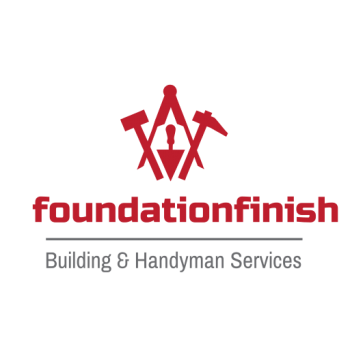Extension Builders in Devon
Welcome to MAG Developments SW Ltd, your trusted partner for exceptional building and renovation services in Derriford and thro... read more »
Hysmark Ltd is a trusted UK-based company specializing in high-quality residential construction, maintenance, and refurbishment. With ye... read more »
Welcome to Linneil Carpenters & Builders, your trusted partner for all building and carpentry needs in Barnstaple and across Devon. As a... read more »
Welcome to Foundationfinish LTD, your trusted partner for all construction and renovation needs in Exeter and across Devo... read more »
Welcome to Joshua Frampton, your go-to experts for all building and renovation needs in Torquay and across Devon. As a leading business i... read more »
N.R Bricklaying Services is your go-to expert for all things bricklaying and building in the heart of Countess W... read more »
Kumiko (SW) Ltd is a distinguished building company based in the charming area of Lower Wear, offering a comprehensive r... read more »
Welcome to JA Builders, the premier choice for building and landscaping services in Countess Wear and throughout Devon. Specialising in B... read more »
Mark Lace Ltd: Leading Builders in Appledore, Devon
Welcome to Mark Lace Ltd, your go-to builders in the picture... read more »
Mi Build Ltd, a renowned name in the... read more »
Welcome to Brierley Building Contractors, your truste... read more »
Welcome to A R G Services, your trusted partner for a... read more »
North Devon Plastering Renovation Specialist<... read more »
Welcome to Meads Builders, your go-to experts for all... read more »
Better Building Services is your go-... read more »
G D Building & Property Services: Premier Ext... read more »
Welcome to GD Building and Property Services, your tr... read more »
Search Extension Builders in Devon by town
- Extension Builders in Exeter
- Extension Builders in Plymouth
- Extension Builders in Ashburton
- Extension Builders in Axminster
- Extension Builders in Barnstaple
- Extension Builders in Bideford
- Extension Builders in Buckfastleigh
- Extension Builders in Budleigh Salterton
- Extension Builders in Crediton
- Extension Builders in Dartmouth
- Extension Builders in Dawlish
- Extension Builders in Exmouth
- Extension Builders in Great Torrington
- Extension Builders in Higher Dunstone
- Extension Builders in Holsworthy
- Extension Builders in Honiton
- Extension Builders in Ilfracombe
- Extension Builders in Ivybridge
- Extension Builders in Kingsbridge
- Extension Builders in Lynton
- Extension Builders in Newton Abbot
- Extension Builders in Northam
- Extension Builders in Okehampton
- Extension Builders in Ottery St Mary
- Extension Builders in Paignton
- Extension Builders in Salcombe
- Extension Builders in Seaton
- Extension Builders in Sidmouth
- Extension Builders in South Molton
- Extension Builders in Tavistock
- Extension Builders in Teignmouth
- Extension Builders in Tiverton
- Extension Builders in Torquay
- Extension Builders in Totnes
- Extension Builders in Wotton Cross
Understanding the Role of Extension Builders in Devon
When it comes to enhancing your home, extension builders in Devon play a pivotal role. These professionals are skilled in transforming spaces, adding value, and creating functional areas that meet your needs. Whether you're looking to expand your kitchen, add a new bedroom, or create a home office, extension builders bring expertise and creativity to the table.
The Importance of Choosing the Right Builder
Choosing the right extension builder is crucial for the success of your project. A reputable builder will not only ensure quality workmanship but also adhere to timelines and budgets. In Devon, where the landscape and architecture are unique, selecting a builder familiar with local styles and regulations is essential.
Experience and Expertise
Experience matters when it comes to construction. Builders with a proven track record in Devon are likely to understand the nuances of local building codes and environmental considerations. Their expertise can help navigate potential challenges, ensuring a smooth construction process.
Reputation and Reviews
Before hiring, it's wise to check reviews and ask for references. A builder with positive feedback from previous clients is often a reliable choice. Online platforms and local community boards can provide insights into a builder's reputation.
Planning Your Home Extension
Planning is a critical phase in any home extension project. It involves defining your goals, setting a budget, and understanding the scope of work. A well-thought-out plan can prevent costly changes and delays down the line.
Setting a Budget
Establishing a realistic budget is a foundational step. Consider all potential costs, including materials, labour, permits, and unexpected expenses. A detailed budget helps in making informed decisions and avoiding financial strain.
Design and Functionality
The design should complement your existing home while enhancing its functionality. Collaborate with your builder to create a design that meets your needs and preferences. Consider factors like natural light, space utilisation, and future-proofing your home.
Understanding Local Building Regulations
In Devon, building regulations can vary significantly. Understanding these regulations is crucial to ensure compliance and avoid legal issues. Your builder should be well-versed in local laws and obtain necessary permits before commencing work.
Permits and Approvals
Most extensions require planning permission and building regulation approval. These permits ensure that your extension meets safety and structural standards. Your builder can assist in navigating the application process.
Environmental Considerations
Devon's natural beauty is a significant consideration in any construction project. Builders must consider environmental impacts and strive for sustainable practices. This includes using eco-friendly materials and minimising waste.
Types of Home Extensions
Home extensions come in various forms, each serving different purposes. Understanding the types of extensions can help you choose the best option for your needs.
Single-Storey Extensions
Single-storey extensions are popular for expanding kitchens or living areas. They offer a seamless transition between indoor and outdoor spaces, often featuring large windows or sliding doors.
Double-Storey Extensions
For those needing more space, double-storey extensions provide additional rooms without sacrificing garden space. They are ideal for growing families or those looking to add value to their property.
Wrap-Around Extensions
Wrap-around extensions combine side and rear extensions, maximising space and creating a unique layout. They are perfect for open-plan living and can significantly alter the appearance of your home.
Working with Architects and Designers
Collaboration with architects and designers is often necessary for complex projects. These professionals bring creativity and technical knowledge, ensuring your extension is both beautiful and functional.
Choosing the Right Architect
Select an architect with experience in residential extensions. Their insight can help refine your ideas and ensure the design aligns with your vision and budget.
Design Process
The design process involves several stages, from initial sketches to detailed plans. Regular communication with your architect is vital to ensure the project stays on track and meets your expectations.
Managing the Construction Process
Once planning and design are complete, the construction phase begins. Effective management is crucial to ensure the project runs smoothly and is completed on time.
Project Timeline
A clear timeline helps manage expectations and track progress. Your builder should provide a detailed schedule, outlining key milestones and completion dates.
Quality Control
Regular site visits and inspections ensure quality standards are maintained. Addressing issues promptly can prevent delays and additional costs.
Dealing with Challenges and Changes
Construction projects often encounter unexpected challenges. Flexibility and proactive problem-solving are essential to keep the project on track.
Common Challenges
Common challenges include weather delays, material shortages, and unforeseen structural issues. Having contingency plans can mitigate these risks.
Handling Changes
Changes to the original plan may be necessary. Open communication with your builder ensures changes are managed effectively, minimising impact on the timeline and budget.
Finalising Your Home Extension
As the project nears completion, several steps are necessary to finalise the extension and ensure satisfaction with the results.
Inspection and Approval
A final inspection ensures the extension meets all regulatory requirements and quality standards. Approval from local authorities may be required before occupancy.
Handover and Aftercare
During handover, your builder should provide documentation, including warranties and maintenance guidelines. Aftercare services may include addressing minor issues and ensuring your satisfaction.
Maximising the Value of Your Extension
A well-executed extension can significantly increase your home's value. Consider factors like design, functionality, and quality to maximise return on investment.
Enhancing Curb Appeal
Extensions that enhance curb appeal can attract potential buyers. Consider exterior finishes, landscaping, and architectural details that complement your home.
Energy Efficiency
Energy-efficient features, such as insulation and double glazing, can reduce utility costs and appeal to environmentally conscious buyers.
Frequently Asked Questions
- What should I look for in an extension builder? Look for experience, positive reviews, and familiarity with local regulations.
- Do I need planning permission for an extension in Devon? Most extensions require planning permission and building regulation approval.
- How long does a typical home extension take? The timeline varies, but most projects take several months from planning to completion.
- Can I live in my home during construction? It depends on the project's scope. Discuss this with your builder to understand potential disruptions.
- How can I ensure my extension is energy-efficient? Use quality insulation, energy-efficient windows, and consider renewable energy sources.
- What are the benefits of a home extension? Extensions add space, increase property value, and can improve your home's functionality.
In conclusion, extension builders in Devon offer invaluable expertise in transforming homes. By choosing the right builder, planning meticulously, and understanding local regulations, you can create a beautiful and functional space that enhances your lifestyle and adds value to your property.
Send a message















